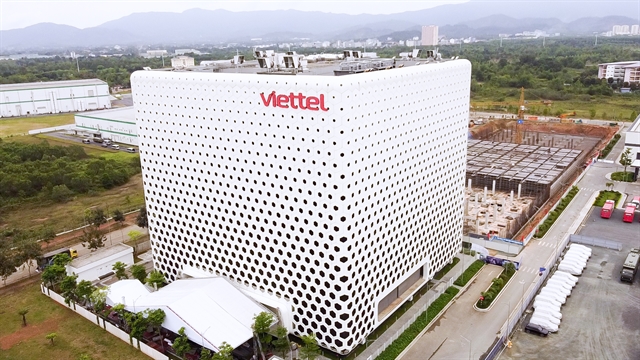Hanoi – Vietnam’s data center industry is experiencing rapid development, thanks to recent investment reform policies and the promotion of digital infrastructure construction.

With the further opening of the investment environment and the shift of regional investment focus from markets such as Indonesia and Malaysia, Vietnam is gradually becoming an important member of the Southeast Asian data center landscape.
In mid-October, the chairman of South Korea’s Hyosung Group said during a meeting with Vietnamese Prime Minister Pham Minh Chinh that the group plans to invest an additional $4 billion in Vietnam, focusing on the development of industrial data centers and high-tech material production. The investment is expected to create about 10,000 jobs and inject new impetus into Vietnam’s economic growth.
Before Hyosung Group, Alibaba, Google and a Singaporean investor also expressed strong interest in Vietnam’s data center market.
Data centers are key facilities for storing and managing servers and data, providing support for cloud computing, website hosting and IT operations. Irish research firm Research and Markets predicts that by 2030, the size of Vietnam’s data center market will exceed US$1.26 billion, with a compound annual growth rate of 10.8%. With the advancement of the digital economy and the increase in investment in semiconductor technology and artificial intelligence, the market has huge growth potential.
Currently, Vietnam’s total data center capacity is about 148 MW, mainly in Hanoi and Ho Chi Minh City, with another 80 MW of facilities under construction, including STT’s 60 MW data center in Ho Chi Minh City. Vietnam Military Telecom Group plans to add 560 MW of capacity by 2030.
The revised version of the Telecommunications Law, which came into effect on July 1, 2023, allows foreign-invested enterprises to fully own local data centers, marking Vietnam’s opening of the cloud computing and data center market to foreign investment.

According to the BMI Country Risk and Industry Research Report, the removal of the 49% foreign shareholding limit has stimulated investor enthusiasm and cleared the way for foreign investors to fully enter the industry. This opening-up move, coupled with reforms in digital infrastructure such as 5G, optical fiber and submarine communications, has created a good environment for data center and cloud computing investment.
“If investment momentum continues, Vietnam is expected to acquire nearly 1 GW of data center capacity, which would make it the third-largest data center market in emerging Southeast Asia,” the study noted.
challenge
Despite the promising prospects, there are still challenges in obtaining US-made GPUs (for graphics and data processing) and TPUs (for machine learning). However, alternatives such as Huawei’s Ascend chips offer a viable solution for improving local data center performance.
In addition, Lin Enman, CEO of Yongnan Capital, revealed at the 2024 Investor Conference held earlier this month that a Singaporean investor intends to invest more than US$1 billion in Vietnam to build a data center, but requires the use of clean energy to form a differentiated competitive advantage.
Currently, Vietnam’s data center market is dominated by local telecommunications companies, with Vietnam Post and Telecommunications Group, Vietnam Military Telecommunications Group IDC, FPT Telecom and CMC Telecom accounting for 97% of the market share. However, international capital is increasingly interested in this field.
Vu Huang Lian, chairman of the Vietnam Internet Association, said that the development of data centers benefited from factors such as digital transformation, the popularization of cloud computing, increased data usage, the development of 5G, and local regulations on data storage.
“The government is accelerating digital transformation and plans to achieve 50% of enterprises transforming to digital platforms by 2025. Vietnam’s 5G network supports low-latency edge data centers,” he said.
“Vietnam is a key focus for investors and operators considering entering the market. Its strategic location, flexible policies, young skilled talent and growing data demand make the Vietnamese data center market a highly promising market in Asia.”
However, the increase in new data centers may put pressure on electricity consumption.
“Energy-intensive industries such as chip manufacturing and artificial intelligence will put pressure on the existing power grid, so upgrading the power system is imperative,” said Chuang, CEO of DTZ Vietnam.
Experts warn that foreign investors still have concerns about power shortages, unattractive investment incentives and internet infrastructure that relies on old submarine cables.
However, as investors seek to diversify their exposure to Southeast Asia, Malaysia’s recent regulatory changes to promote sustainable development may curb investment growth, prompting investors to focus on less saturated markets such as Vietnam and Thailand.







